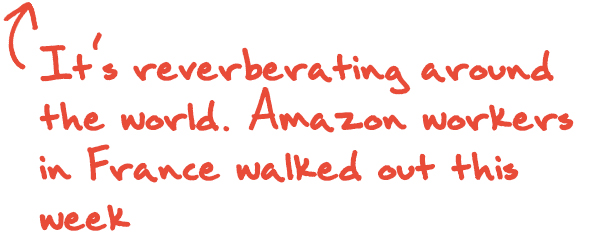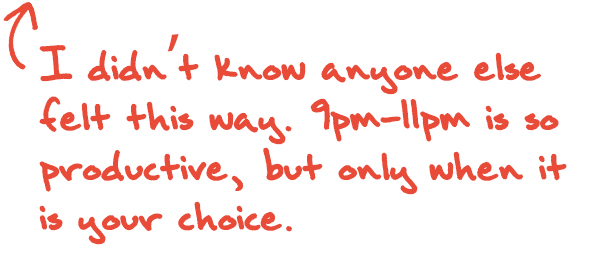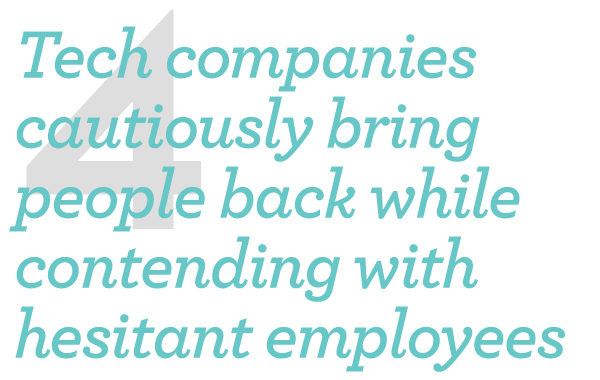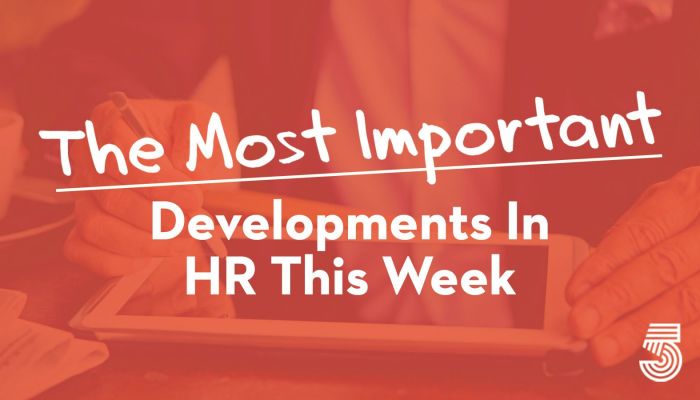The M.I.D., as we call it, is curated by our editorial team from more than 50 news sources. Like a lot of good ideas, this started as something I wanted for myself. If I can’t read everything, I at least want to stay abreast of the most important developments.
This week in HR, Amazon workers unionized, we were told HR leaders themselves are the biggest innovation in HR, more office workers were logging on at night, Google (and others) brought back the commute, and a bill is looming to change 401(k) enrollment.


The Amazon Labor Union (ALU) scored a historic victory on April 1 when it became the first-ever union to successfully organize Amazon employees. It was a hard-won victory, coming after years of work, and labor activists are already hoping to apply the same tactics to the hundreds of thousands of Amazon warehouse workers across the rest of the country. Instead of knocking on co-workers’ doors, the organizers camped out near the warehouse, handing out literature, answering questions, and sharing news stories about how much Amazon was spending on things like corporate salaries and labor consultants. They even held phonebanks, calling every one of the workers eligible to vote in the election. More importantly, organizers say Amazon underestimated their resolve. In an interview with The Verge, Gerald Bryson, the ALU’s sergeant-at-arms, said that the company had a dismissive attitude towards him and his fellow organizers. He made repeated references to how Amazon representatives called them inarticulate “thugs,” behavior that was cited in a lawsuit from the National Labor Relations Board (NLRB). The Verge


Despite a focus on technology to improve areas like employee experience and workflows, the most powerful innovation in human resources today is actually the people of HR themselves. George LaRocque, co-founder of WorkTech and a keynote speaker at the Health & Benefits Leadership Conference, said during Wednesday’s Ideas & Innovators panel, that HR professionals have more potential to drive change than emerging technology or a new catchphrase. “It’s you. I have worked with HR people and technology innovators and the biggest change in the HR profession is the people. You have changed as much as your talent,” he told HBLC attendees. “You are the best innovation happening in HR right now,” he added. That’s not to say tech innovation isn’t abounding — it was on full display at the Ideas & Innovators session, in which solution providers were given five minutes to discuss new tools and the elements that drive the need for their solutions. Addressing employee stress was a big theme. HR Executive


Traditionally, office workers have had two primary productive stretches in their workday: before and after lunch. But a recent Microsoft study has found that since the shift to hybrid and remote work, a new period of productive working time has emerged: 9 p.m. to 11 p.m. According to the study, which tracked Microsoft employees’ computer usage, some employees worked as much at 10 p.m. as they did at 8 a.m. In fact, about 30% experienced this new “triple peak” working day. While the phrase “triple peak day” has the makings of a bleak new verse to Dolly Parton’s “9 to 5,” Microsoft tried to put a positive spin on it. It could reflect a workforce spread across several time zones, or indicate that employees have more flexibility to schedule their days, the company wrote. However, it could also reflect a lack of work–life boundaries within remote teams. According to Microsoft’s research manager, people have 250% more meetings every day than they did pre-pandemic. Morning Brew


Starting Monday, Google is bringing most employees back to assigned physical offices three days a week. The company has said since the beginning of the pandemic that it eventually wants people to return. A lot of workers don’t understand why, and they expressed their concerns at a recent all-hands meeting. “Google made record profits through the pandemic,” CEO Sundar Pichai said, reading from a question submitted by an employee and upvoted by many others on Google’s internal board called Dory. “Why is the RTO policy not work from office when you want to or when it makes sense to?” Google’s balancing act is shared by many employers, particularly as surging gas prices make long drives and traffic jams even more unappealing than they were two years ago. Tech companies in particular have outperformed during the pandemic, thanks in part to a wide array of cloud-based collaboration tools. Employees have gotten used to the flexibility and family time. Companies now face a test to see how employees will react as some optional work situations become mandatory and the labor market continues to tighten. CNBC


By the end of the decade, about 21% of the country’s population will be 65 or older, up from 15% in 2016, according to forecasts by the Census Bureau. Most non-retired adults have some type of retirement savings, but only 36% think their savings are on track. Now, Congress is looking to help Americans save by bolstering 401(k) programs — the tax-deferred, company-sponsored retirement accounts to which employees can contribute income, and employers can match their contributions. A new bill, expected to reach President Joe Biden’s desk by the end of the year, could require most employer-sponsored retirement plans to enroll their workers automatically, making it easier for student-loan borrowers to save, and for older workers to make catch-up contributions. It will also lower costs for smaller businesses. CNN










